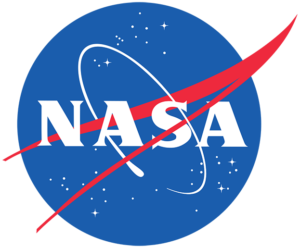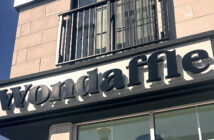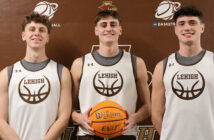
Courtesy of NASA
Former Lehigh engineering professor Yujie Ding was sentenced to one year and one day in federal prison by Judge Harvey Bartle III on Wednesday.
Fifty-four-year-old Ding was arrested for a scheme to defraud NASA while attempting to flee to Reykjavik, Iceland, on Nov. 3, 2014. He was released on $50,000 bail and was indicted in early February 2015. The trial, originally set for April 4, 2015, was delayed multiple times until Nov. 9, 2015. He was represented by attorney Robert Gamburg, according to the official sentencing summary.
Ding was previously convicted by a federal grand jury on six out of 10 counts of wire fraud. The sentence includes a $72,000 restitution payment to NASA as well as a $3,000 fine and an assessment charge of $600. Counts one through four were acquitted as phase one work was completed and the first advance for phase two was delivered according to a memorandum written by Bartle in April 2016
Ding’s wife, forty-two-year-old Yuliya Zotova, was sentenced to three months in federal prison two weeks ago, as well as given a $1,000 fine and a $600 assessment. The restitution payment will be paid jointly between Ding and Zotova, according to the sentencing summary.
The couple received two research contracts from NASA in 2010 to create a single photon detector, a device used to trace chemicals in the atmosphere. The project was supposed to be carried out through their company ArkLight through three phases of funding according to the April 2016 memorandum.
Ding received the first two phases of funding before NASA began investigations.
Both contracts contain limitations for work on the project. The first contract said ArkLight was not able to subcontract more than one third of the labor, while the second said only one half was allowed to be subcontracted according to the April 2016 memorandum.
These limits exist as part of NASA’s Small Business Innovation Program. The program encourages small businesses to come up with new technologies, ensuring the businesses are the main source of the labor.
Both contracts were violated by Ding and Zotova because they subcontracted through Lehigh, relying on research that was done completely by graduate students. The majority of research funds were kept for themselves according to Bartle’s July 2015 memorandum.
In June 2015, Ding motioned for paragraphs 37-39 of the indictment to be removed. These paragraphs said he actively concealed his affiliation with ArkLight as well as his relationship with Zotova. The government later provided evidence of Ding’s intended concealment in a statement describing his relationship to ArkLight according to the April 2016 memorandum.
“I helped to start this company in Arkansas,” Ding said in 2003. “I am no longer a president of this company. I am just a consultant.”
Ding said in July 2015 any alleged concealment of information from the university was irrelevant as it was not the target of the scheme.
Bartle disagreed in his July 2015 memorandum.
“As alleged, Ding’s deception of Lehigh was done in furtherance of the overall scheme to defraud NASA and is clearly relevant,” Bartle said. “It will not be stricken from the indictment.”
Bartle said Ding’s reasoning was that some courts determined the entity deceived must also have lost property to consider fraud against said entity. In this case, the deceit of Lehigh was an important part of the overall scheme and was taken into account.
Among the things kept hidden from the university was Zotova’s role in the scheme. The phase one proposal said Zotova would be involved with supervising the students on a daily basis.
Yi Jiang, ’11, a Ph.D. fellow during the phase one contract, testified he never met or had any contact with Zotova. Jiang’s job had been to design, conduct and collect data from the experiment.
Da Li, ’14, an undergraduate student, had worked with Jiang during phase one and later by himself on phase two. He said, Zotova had “extremely limited or no involvement,” and that the project was Ding’s idea. Li’s job was to purchase parts, set up and perform the experiment, and collect data.
Ding and Li met face-to-face many times and worked to deliver a quarterly report to NASA in June 2011. The report later had a cover sheet added with Zotova’s name on it, implying she had created the draft.
The jury found Zotova’s absence demonstrated that the defendants knowingly acted with intent to defraud.
The proposals also said that in accordance with SBIR guidelines, Ding was limited to acting as principal investigator for Lehigh. Funding was supposed to be used to pay two individuals, Zotova and an optical engineer. Ding’s personal work on the primary contract was a direct violation.
NASA states that all certifications and guidelines are critical elements for eligibility in the SBIR program. Its SBIR website says that NASA has zero tolerance for fraud, waste and abuse.
Ding’s sentence will begin on March 1, 2017, in order for Ding to stay with their two children while Zotova serves her sentence.





Comment policy
Comments posted to The Brown and White website are reviewed by a moderator before being approved. Incendiary speech or harassing language, including comments targeted at individuals, may be deemed unacceptable and not published. Spam and other soliciting will also be declined.
The Brown and White also reserves the right to not publish entirely anonymous comments.